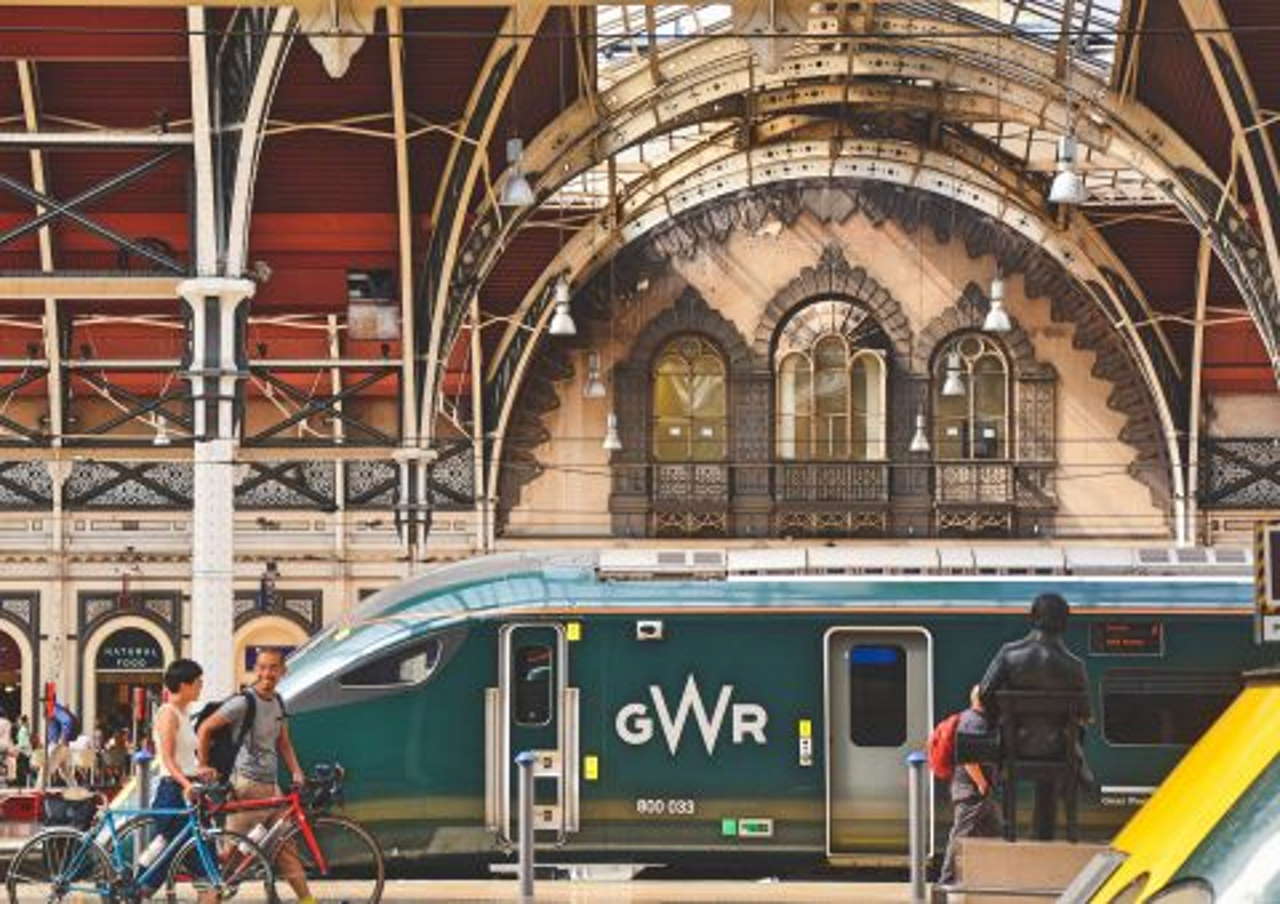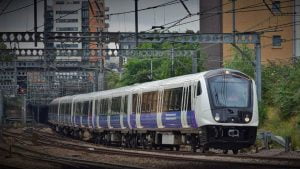Hitachi Rail and Eversholt Rail have reached an advanced point in the design and engineering process for a trial of the battery using Great Western Railway (GWR) Class 802 train during 2022.
The proof of concept and layout have now reached the latter stages of approval for the electric-diesel-battery (Tri-mode) train, with work now being carried out to build the battery to allow functional testing and integration onto the train. The size of the battery will be 6m x 2.2m and will be used in place of one Diesel engine on a five-car GWR Class 802 train.
The battery is intended for use on the partially electrified route between Penzance and London and will mean that two operating modes can be utilised. The modes are; battery-only mode for use on non-electrified sections of GWR’s network and a mode which will support the diesel engines when needed to sustain the performance of the train.
A reduction in fuel usage and carbon emissions by a minimum of 20% will be provided with the use of the new battery. Other benefits of the battery will see air quality in and out of stations and in urban areas improved alongside a reduction in noise levels making an agreeable environment for both passengers and residents living near to the railway.
Fire safety tests have already been carried out to support the design and safety case of the battery, the next steps will see system integration testing at Hitachi’s facility in Naples alongside combined testing in Japan during 2022. The testing will then allow manufacturing and fitting to be carried out at Hitachi’s Newton Aycliffe Factory followed by track testing on the GWR network.
Jim Brewin, UK & Ireland Country Lead, Hitachi Rail said: “Creating an intercity battery hybrid train is a green innovation that will cut emissions by at least 20%,improve air quality and generate fuel savings for the operator. This is new technology, and we have made progress in creating the battery prototype and are now preparing for system and network trials. The UK has an opportunity to become a global leader in battery technology and we believe it will be key to the Government meeting its Net Zero targets.”
Peter Wilkinson, Managing Director Passenger Services at the Department for Transport (DfT) said: “I’m thoroughly delighted to see these battery trains progressing. In a world increasingly vulnerable to climate change, and the environmental and atmospheric impacts of carbon and other forms of pollution, the rail industry must both show leadership and take the lead; waiting for permission simply won’t be an acceptable excuse. This project is an exemplar and we are going to need others like it if we are to succeed in creating a future mixed economy of modern, environmentally clean and safe future rolling stock traction solutions.”
Paul Sutherland, Client Services Director at Eversholt Rail said: “We are extremely proud of the investment we have made in our Class 802 fleet on the Great Western Railway. This fleet has brought a step change in train performance and passenger environment on the routes they operate and this hybrid investment is the next stage in that journey. We are excited to be working with Hitachi, using leading edge battery technology to deliver this project. This equipment will enable a reduction in carbon and noise emissions whilst improving air quality and delivering fuel savings.”
Steve Montgomery Managing Director of First Rail said: “We recognise and welcome opportunities to invest in sustainable rail initiatives and support innovations such as this which create solutions to help improve rail’s emissions and air quality, accelerating the transition to a zero-carbon world. Working with our industry partners ensures that we achieve a better environment for our customers and will further encourage them to switch from cars to trains, which have a lower environmental impact per passenger mile.”
Where Next on RailAdvent?
Subscribe for More
Railway News
DVDs, Prints, Cards, Gifts and more
MAINLINE STEAM INFO
Competition Time!
COMMUNITY PHOTOS
FREE NEWSLETTERS






Responses
Hitachi Class 800 and Class 802 used on GWR, LNER, Hull Trains and Transpennine Express could have batteries fitted. As well Class 801 and Class 803 which are used on LNER and Lumo. And of course batteries installed on ScotRail Class 385.
The usual rentaquotes from Wilkinson
Will the Class 387/1s could also be fitted with batteries and to operate them on the small branch lines in the Thames Valley area including Slough-Windsor & Eton Central, Maidenhead-Bourne End & Marlow, Twyford-Henley-on-Thames, West Ealing-Greenford, Reading-Basingstoke and Didcot Parkway-Oxford. And to replace the Class 165 & Class 166 diesel Networkers to be transferred to operate in the Bristol area.